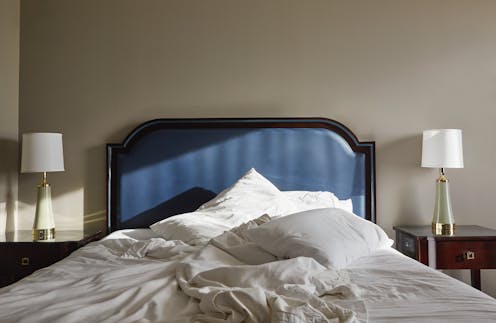Hotel guests are getting used to refillable shampoos and less housekeeping, study suggests
- Written by Farhad Tabatabaei, Ph.D. Candidate in Hospitality Business Analytics, University of Delaware

Eco-friendly hotels increasingly are asking guests[1] to forgo daily housekeeping or use their towels more than once. At the same time, hospitality researchers have long assumed[2] that guests find these efforts to promote sustainability inconvenient[3] and undesirable[4]. My research, however, suggests that this is not – or is no longer – the case.
A colleague and I conducted an online survey[5] to test participants’ explicit as well as implicit attitudes toward several eco-friendly practices, such as using refillable shampoo dispensers, actively conserving water and changing the sheets once every three days rather than daily. When we looked at explicit attitudes – that is, their conscious, purposeful beliefs – we found that people don’t associate these practices with inconvenience or discomfort, suggesting consumer attitudes toward these policies are more favorable than researchers previously thought.
Our study was published[6] in March 2024 in the Journal of Hospitality and Tourism Management.
Understanding customer attitudes is crucial to every business, as well as to market scholars like myself. It can help businesses better cater to customer needs, enhance guest experiences and promote sustainable practices. Also, by aligning eco-friendly offerings with evolving consumer expectations, businesses can contribute to environmental conservation efforts while still meeting customer needs.
Our results could help hotels and similar businesses that have been reluctant to communicate their sustainability practices to customers. Instead, our findings suggest managers should feel more confident about promoting their eco-friendly initiatives. It can actually create a more positive image for their businesses by showing they are trying to be environmentally responsible.
When we compared these explicit attitudes with participants’ implicit or unconscious ones, we also found that people don’t see eco-friendly policies as inconvenient. The link, however, was not as strong as their explicit attitudes, offering more evidence of a “green gap[7]” – or the difference between how people say they feel about sustainability and what they really think.
Put another way, when people are directly asked about their feelings of sustainability, they generally say they’re all for it. However, when this feeling about sustainability is measured through a psychological tool such as the Implicit Association Test[8], that support becomes a bit weaker – though it’s still there.
References
- ^ increasingly are asking guests (mastelhospitality.com)
- ^ hospitality researchers have long assumed (doi.org)
- ^ inconvenient (doi.org)
- ^ undesirable (doi.org)
- ^ conducted an online survey (doi.org)
- ^ Our study was published (doi.org)
- ^ green gap (www.doi.org)
- ^ Implicit Association Test (implicit.harvard.edu)







